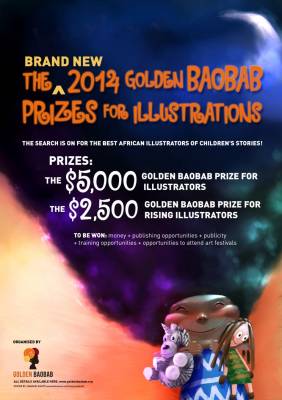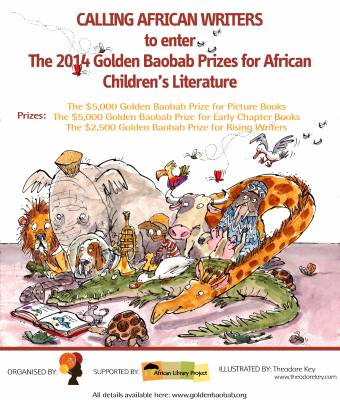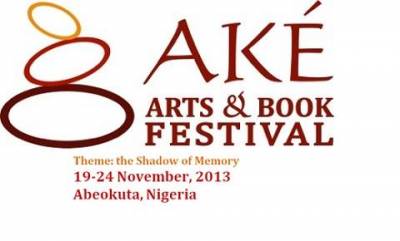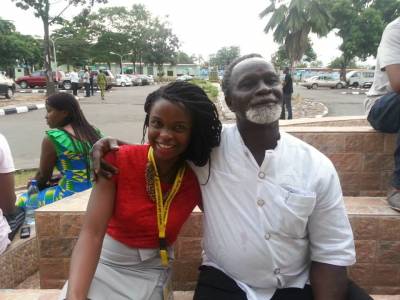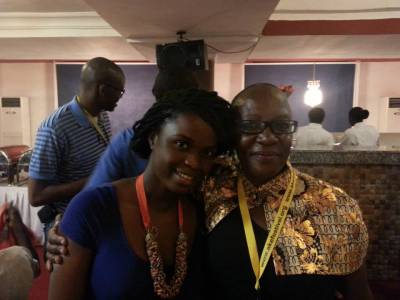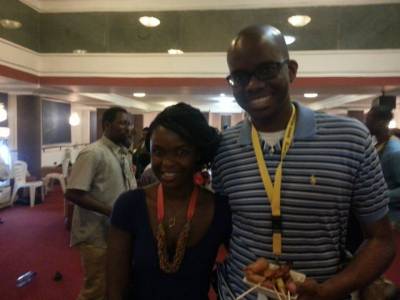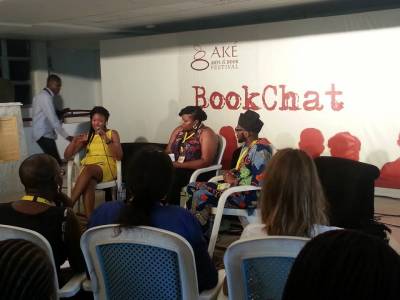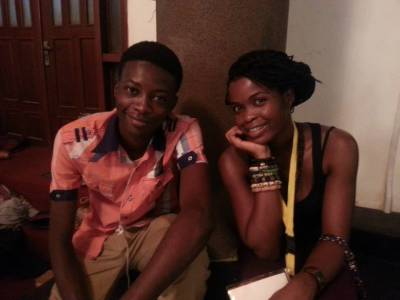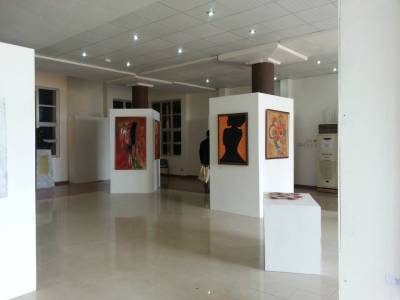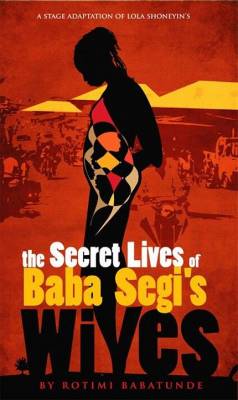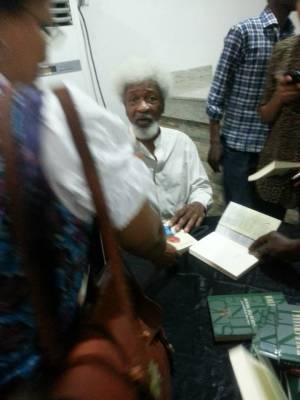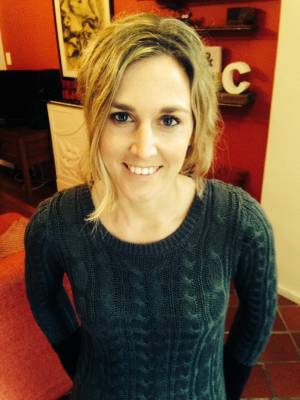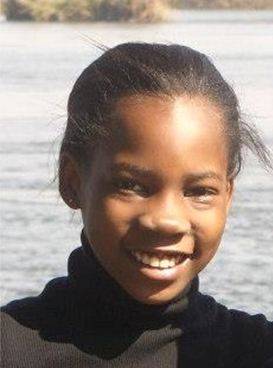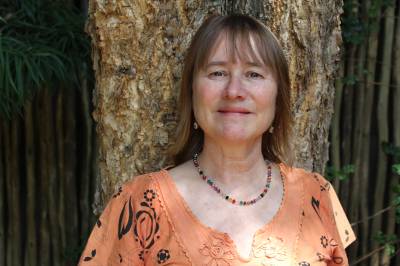
"Nestling against my mother for a bedtime story under the veil of a mosquito net was a magical time. The best stories were told when my sister and I pleaded for our mum to tell us a story from her head" - Karen Hurt, 2013 Winner of the Golden Baobab Prize for Early Chapter Books.
Karen Hurt is a South Africa based independent writer, editor, materials developer and writing workshop facilitator. She is also the winner of the 2013 Golden Baobab Prize for Early Chapter Books for her story,What’s Going on at 179 Jabulani Street.
Apart from addressing current topics in a way that children will find engaging, Karen has learnt to shed her protector role and free her young protagonists when she is writing fiction. Esi Sutherland-Addy, professor at the University of Ghana African Studies Department and 2013 judge commented on Karen's story, “The protagonists of this gripping adventure story are depicted as true children; up to pranks and trying to outwit grownups.”
We had a nice little chat with Karen and she told us about some of her favourite books. Read the interview below to find out what they are!
Describe your childhood. What were you like, what was your family like, and what did you like to do?
My parents encouraged natural curiosity and for us, their daughters, to take an interest in current affairs; and to see the world as our classroom. I never once heard them tell me that there was something I couldn’t do because I was a girl. They did not doubt the imaginary horses I galloped around on nor my imaginary friends. My mother crawled into the tent-style houses we made out of sheets pegged onto chairs set on a carpet that floated on rivers, and she pretended to drink the muddy-water tea we concocted.
Playing with marbles and cars, setting up a classroom for my dolls and making them tiny school books (I have no recollection what I taught, if anything), climbing the huge tree in our garden and observing the world below,putting on spontaneous shows, and playing with friends were amongst my favourite things to do.
My parents were avid readers and through them I developed a taste for reading. These values; and childhood experiences growing up in Zambia (where I was born), the UK, and South Africa shaped my formative years.
On what I was like, I just called my 82-year-old mother. She said I was, ‘never in trouble and easy-going.’ I guess I live out the life of getting up to mischief through the characters in my stories.
When you were young did you like to read?
I loved reading on my own, and listening to stories that my parents or teachers read aloud. The family reading tradition continued when I had children – we’d gather together mostly in the evening or when on holiday for story times. We read the Harry Potter series, Eva Ibbotson’s wonderful Journey to the River Sea, and Mike Haddon’s Curious Incident of the Dog in the Night-Time this way. Even today, in conversation, we refer to those books we traversed together.
Actually, I still love being read to – a story, a newspaper article, something my children have written for school or university.
What types of books did you read? What was your favorite book as a child?
I read mostly detective, mystery and adventure stories. Enid Blyton’s adventure/fantasy The Magic Faraway Tree was a favourite. And the very sad Adventures of the Little Wooden Horse by Ursula Moray Williams. After many tearful chapters, at least it had a happy ending. I believe this book has recently been republished.
How did you come to start writing?
As a child I wrote little stories and letters to family from the time I learnt how to write. Whenever my family travelled, diary writing was part of the journey. I still have some of the entries.
What other writers inspire you and in what ways?
I’ve been inspired and moved by so many writers both in fiction and narrative nonfiction. Most recently, however, Ruth Ozeki’s A Tale for the Time Being – shortlisted for the 2013 Man Booker Prize – has caused me to think about time, and being, in a new way. It’s a breath-taking multidimensional story with a fascinating teenage protagonist. The story has lingered and I hope it will motivate me to be more experimental and perhaps more daring in how and what I write in future. NoViolet Bulawayo’s novel We Need New Names – shortlisted for the same prize – inspires me to want to craft harder and more creatively at dialogue, description and the creation and sustaining of vivid children characters and their voices.
I get much food for thought from reading or listening to/watching interviews with authors. Philip Pullman comes to mind here, as does Chimamanda Ngozi Adichie, especially her TED talk The Danger of a Single Story.
What does winning the Golden Baobab Prize mean for you?
It means the world to me. Being told the news still feels unreal. When I think about it, my heart does a quick cartwheel. I hope it will mean networking and possibly collaborating in some way with authors who share the Golden Baobab’s passion, mission and goals. And to have the story published would be absolutely fabulous!
What inspired you to write What’s Going on at 179 Jabulani Street?
I tend to start with place, a faint scent of a theme or plot, and then characters. With What’s going on at 179 Jabulani Street? I wanted to set a story on the side of Johannesburg where I live, beneath the gaze of two tall buildings that dominate our skyline day and night in a compass-like way. Ponte Tower is a 54-storey donut-style apartment building which has a red crown at night, and the Hillbrow Tower’s top shines blue. Most of the story takes place nearby in Yeoville, where Sophie, one of the two protagonists, lives.
There have been regular ads on the radio and TV saying we all need to do something about stopping rhino poaching and many news stories about how many rhino have been killed; and debates around how to stop the poaching and decrease demand for rhino horn powder. How do children whose concerns are more survivalist relate to these rhino stories and being urged to do something?
I decided to explore this through the story. The research was fascinating and in some cases visually violent. I found out about poaching and smuggling techniques and routes. On the internet I came across an interview with a cleaner in one of the big game reserves about the impact of poaching on her life. This gave me some insight that I was looking for.
What inspires you as a writer?
- Places.
- Authors whose writing is of a quality that takes my breath away. It makes me want to learn more about the craft of writing.
- Quirky things when walking or driving around my district and the city – or anywhere. Story ideas pop up this way but many fizzle out. One image that has remained with me is watching a grown man running down the street at high speed pushing a pink toy pram. Why? It seemed to me there were so many possibilities. I still want to get to that story.
- When, after drafts and drafts, the story begins to coalesce and there’s that feeling that it’s going to work.
What is your dream for African children’s literature?
We need a deliciously wide range of genres written by African writers, set in African contexts with characters that African children will be excited by and identify with. I think it is overdue that children all over the world had the opportunity to read stories like these.
What legacy would you as an African children’s writer want to leave in improving the reading and writing culture in Africa?
It feels presumptuous to talk about leaving a legacy. But I am passionate about promoting a love for reading and creative writing. I think campaigns to encourage reading and telling stories in families is one way to do this. Aside from enjoyment, it can also help children and parents/guardians open up discussions on topics that are sensitive and often avoided.
I’m a big fan of promoting journal writing from a young age and encouraging writing as an enjoyable activity that helps children become confident at it, just like practicing a sport does. Journal writing can help children express themselves, and for them to find their own authentic voice when it comes to writing for school and pleasure.
Children’s enthusiasm for writing can easily be squelched by teachers’ red ink corrections and focus on grammar and spelling. It would be great if we could spend more time in classrooms making space and time for children’s imagination to evolve, to write drafts and get feedback from peers and the teacher, and for editing to be done as the final part of the writing process.
Thanks for speaking with us, Karen. We've enjoyed our chat!
